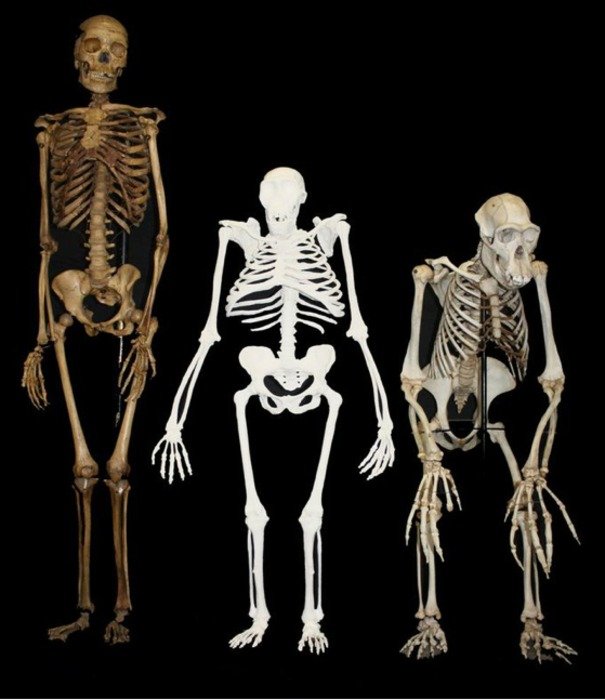Image shows Au. sediba, center (white), compared to the skeleton of a modern human, left, and a chimpanzee, right. Credit: Lee Berger, University of the Witwatersrand.
COLLEGE STATION, Texas, April 11 (UPI) -- A collection of prehuman skeletons discovered in South Africa has anthropologists saying it may be time to reconsider mankind's evolutionary path.
International researchers studying fossil remains of a puzzling pre-human species from 2 million years ago say evidence of how they walked, chewed and moved suggest they may be a new candidate for a direct human ancestor.
Experts have long considered Homo habilis as the most likely precursor to Homo erectus, the immediate ancestor to modern humans, but paleoanthropologist Lee Berger of the University of the Witwatersrand in Johannesburg, South Africa, say his research suggests another possible lineage, through a species dubbed Australopithecus sediba.
Au. sediba's dental structure suggests it was distinct from Au. Afarensis, a class of East African hominins that includes Lucy, a famed prehistoric skeleton discovered in 1974 considered an example of the species from which all prehumans developed.
Researchers say Au. sediba could be considered a "ghost lineage" completely divorced from Lucy and her East African contemporaries but which shows a number of surprisingly humanlike features.
"Everywhere we look in these skeletons, from the jaws on down to the feet, we see evidence of the transition from australopith to Homo," Darryl de Ruiter, a professor at Texas A&M University and co-author of one of the papers on Au. Sediba studies, said in a statement. "Everywhere we see evidence of evolution."
"Au. sediba looks more like Homo than any other australopith known," de Ruiter said in an e-mail to The Verge, "and for this reason represents an excellent candidate ancestor for the genus Homo."
Berger acknowledges there is still uncertainty in the evolutionary lineage, but the new findings could lead the search into new avenues.
"We thought we knew how this part of human evolution worked, and sediba comes along and says, 'Here's another option.'"















